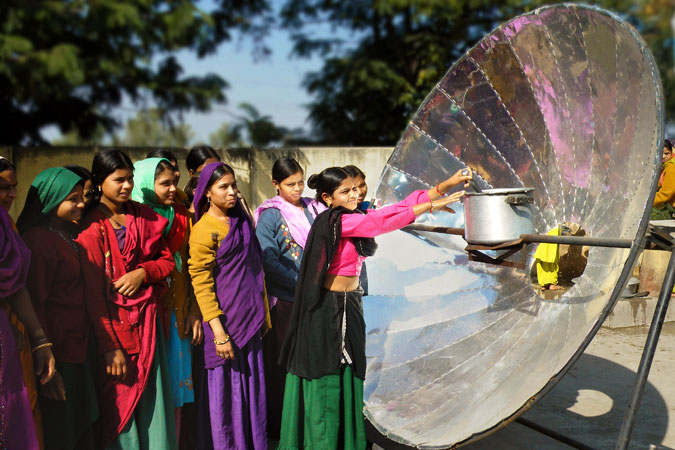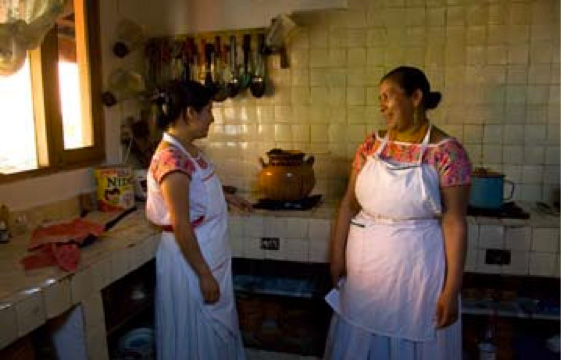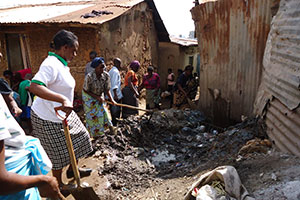SDG 12: Ensure sustainable consumption and production patterns

Targets
- Implement the 10-year framework of programmes on sustainable consumption and production, all countries taking action, with developed countries taking the lead, taking into account the development and capabilities of developing countries.
- By 2030, achieve the sustainable management and efficient use of natural resources.
- By 2030, halve per capita global food waste at the retail and consumer levels and reduce food losses along production and supply chains, including post-harvest losses.
- By 2020, achieve the environmentally sound management of chemicals and all wastes throughout their life cycle, in accordance with agreed international frameworks, and significantly reduce their release to air, water and soil in order to minimize their adverse impacts on human health and the environment.
- By 2030, substantially reduce waste generation through prevention, reduction, recycling and reuse.
- Encourage companies, especially large and transnational companies, to adopt sustainable practices and to integrate sustainability information into their reporting cycle.
- Promote public procurement practices that are sustainable, in accordance with national policies and priorities.
- By 2030, ensure that people everywhere have the relevant information and awareness for sustainable development and lifestyles in harmony with nature.
- Support developing countries to strengthen their scientific and technological capacity to move towards more sustainable patterns of consumption and production.
- Develop and implement tools to monitor sustainable development impacts for sustainable tourism that creates jobs and promotes local culture and products.
- Rationalize inefficient fossil-fuel subsidies that encourage wasteful consumption by removing market distortions, in accordance with national circumstances, including by restructuring taxation and phasing out those harmful subsidies, where they exist, to reflect their environmental impacts, taking fully into account the specific needs and conditions of developing countries and minimizing the possible adverse impacts on their development in a manner that protects the poor and the affected communities.
Unsustainable consumption and production patterns, historically concentrated in countries and groups with the highest standards of living, have pushed the world against its planetary boundaries. Surpassing these limits poses the risk of resources being lost forever. Climate change, impacted by greenhouse gas emissions, poses escalating threats.
At the high end of consumption and production, patterns can be wasteful. Food losses occur at every stage, from field to table. Forests are cut down and minerals mined for products used one year and thrown away the next.
The world of waste coexists with a world of want. There, people consume barely enough to survive.
A safe and sustainable future depends on reducing extremes. Women in consumption and production must have equal access to means such as land and technology that can boost their standard of living. Women at large must assume equal leadership in striking a better balance—in parliaments and boardrooms, in their communities and families.
UN Women acts to redress imbalanced consumption and production by advocating for policy reforms that back equitable ownership and use of property and resources. Property titles are one area of focus, since these remain out of reach for many women, due to legal or social barriers. Without them, women typically lose access to the technologies and resources they need to achieve sustainable levels of consumption and production.
Stories
Preserving the balance between business and nature in Mexico
Supported by a UN Women partnership with the Mexican Government, a hotel run by indigenous women is showing the path to sustainable tourism. It recycles the organic waste, harvests rainwater, uses its composted organic matter to fertilize the garden, has dedicated green spaces to ensure clean air and prepares meals made with locally grown vegetables.
Women living with HIV cultivate leaders and food, in Uganda’s slums
In the Katwe slum in Kampala, a group of women living with HIV are cultivating food, cleaning up the community to reduce waste, and raising awareness of the right to sanitation, adequate housing and healthy and sustainable community living.

